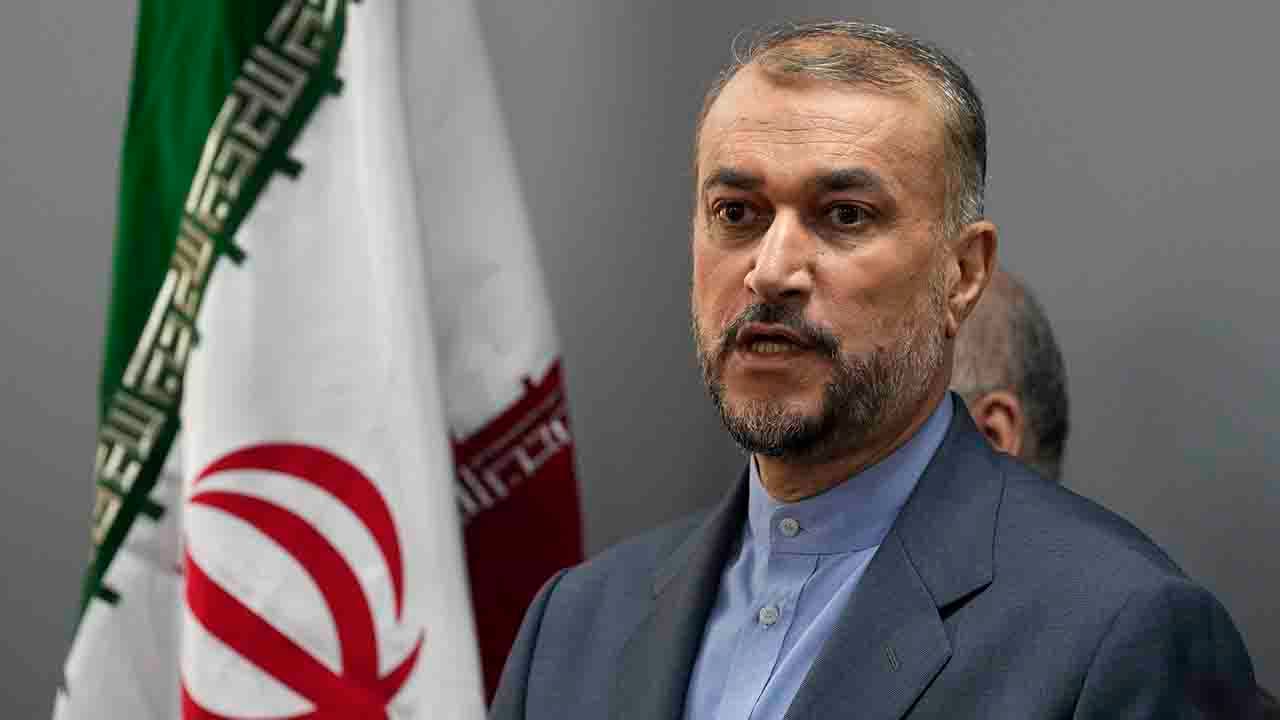Will Trump's Iran Policy Box In Israel?

Table of Contents
The relationship between the US and Israel has been a cornerstone of Middle Eastern geopolitics for decades, built on shared strategic interests and unwavering support. Simultaneously, the ongoing threat posed by Iran's nuclear ambitions and regional influence has cast a long shadow over this alliance. Trump's approach to Iran dramatically altered this established dynamic, raising crucial questions about its impact on Israel's ability to pursue its own security goals. This article will argue that while Trump's "maximum pressure" campaign presented both opportunities and challenges for Israel, the subsequent shift under Biden introduced a new set of complexities.
Trump's Maximum Pressure Campaign and its Impact on Israel
Trump's "maximum pressure" campaign against Iran represented a significant departure from previous US administrations' approaches. This strategy, aimed at crippling Iran's economy and curbing its regional influence, involved several key actions:
- Withdrawal from the JCPOA: The unilateral withdrawal from the Joint Comprehensive Plan of Action (JCPOA), the 2015 nuclear deal, removed a crucial constraint on Iran's nuclear program.
- Re-imposition of Sanctions: The re-imposition of crippling economic sanctions aimed to severely restrict Iran's access to international finance and trade.
- Increased Military Presence: The US increased its military presence in the region, bolstering its regional allies and signaling a stronger commitment to confronting Iran.
These actions had a profound impact on Israel's strategic calculus. On one hand, the containment of Iranian influence, particularly its nuclear program, presented a clear benefit. Israel viewed Iran's nuclear ambitions as an existential threat, and Trump's aggressive stance aligned with its own concerns.
However, the maximum pressure campaign also carried significant drawbacks. The increased regional instability, fueled by heightened tensions with Iran, created new security challenges for Israel. Moreover, the reduced diplomatic leverage resulting from the abandonment of the JCPOA potentially limited Israel's options for engaging in multilateral efforts to address the Iranian threat. The lack of diplomatic avenues could be seen as a constraint on Israel's preferred approach to the Iran issue.
Israel's Independent Actions Despite Trump's Policy
Despite the overarching framework of Trump's policy, Israel continued to pursue its own independent actions concerning Iran. This demonstrated a clear willingness to act unilaterally when deemed necessary for its national security. Examples include:
- Strikes on Iranian Targets: Israel conducted numerous strikes on Iranian targets within Syria and potentially elsewhere, aiming to disrupt Iranian military build-up and limit its support for regional proxies.
- Counter-Nuclear Efforts: Israel continued its own clandestine efforts to prevent Iran from acquiring nuclear weapons, relying on intelligence gathering and other covert operations.
- Discrepancies in Approach: While aligned on the ultimate goal of curbing Iranian aggression, discrepancies arose between the US and Israel regarding the best strategies to achieve this goal, leading to occasional tensions in the alliance.
This independent action highlighted the enduring tension between alignment with US policy and the pursuit of Israel's own national security interests. While the alliance remained strong, the divergence in approach occasionally led to friction, underscoring the limits of complete alignment even within a strong bilateral relationship.
The Biden Administration's Shift and its Implications for Israel
The Biden administration signaled a significant shift in approach towards Iran, prioritizing diplomacy and a return to multilateralism. This contrast with Trump's "maximum pressure" strategy has significant implications for Israel:
- Rejoining (or attempting to rejoin) the JCPOA: Biden's administration actively sought to rejoin the JCPOA, potentially altering the dynamics of nuclear negotiations and sanctions.
- Diplomatic Engagement: Biden prioritized diplomatic engagement with Iran, seeking to de-escalate tensions and address concerns through negotiations, rather than solely through sanctions and military pressure.
- Differing Regional Approaches: The Biden administration displayed different approaches to regional conflicts involving Iran and its proxies, often emphasizing de-escalation and diplomatic solutions.
This shift has raised concerns in Israel about the potential implications for its strategic autonomy. While the Biden administration reaffirmed its commitment to Israel's security, the emphasis on diplomacy with Iran could potentially reduce the pressure on Tehran and limit Israel's ability to act unilaterally to address perceived threats. This created potential for increased or decreased tension between the two allies, depending on the effectiveness and outcomes of Biden's approach.
Potential for Increased Regional Instability
Both Trump's and Biden's policies, despite their differences, present the potential for increased regional instability:
- Impact on Proxy Wars: Changes in US policy can influence the dynamics of regional proxy wars, potentially escalating conflicts involving Iran and its allies.
- Risk of Escalation: Regardless of the approach taken, the inherent tension between Iran and its regional adversaries remains a significant risk factor for escalation.
- Threats to Israel's Security: Increased regional instability poses a direct threat to Israel's security, regardless of the specific US policy toward Iran.
This inherent instability complicates Israel's decision-making process, forcing it to navigate a complex environment marked by potential for both escalation and de-escalation, dependent on the ever-shifting dynamics of the region.
Assessing the Constraints on Israeli Strategy
In conclusion, Trump's Iran policy presented a double-edged sword for Israel. While the "maximum pressure" campaign aligned with Israel's desire to contain Iran's nuclear ambitions and regional influence, it also increased regional instability and potentially limited Israel's diplomatic options. Israel's independent actions demonstrated its determination to safeguard its national security interests, even when diverging from US policy.
The Biden administration's shift towards diplomacy introduces a new set of challenges. The potential return to the JCPOA and emphasis on de-escalation could both ease tensions and potentially constrain Israel's strategic autonomy. The future of the US-Israel relationship regarding Iran will depend on the success of diplomatic initiatives, the continued threat posed by Iran's nuclear ambitions, and the ability of both nations to navigate the complexities of Middle East geopolitics.
To further explore this critical issue, research "Trump's Iran policy" and its lasting effects on Israel's foreign policy. Learn more about Iran's nuclear ambitions, the strength of the US-Israel alliance, and the ever-changing dynamics of Middle East geopolitics by consulting reputable news sources and academic journals. Understanding these complexities is crucial to grasping the future of this vital strategic relationship.

Featured Posts
-
 Bungay Wherry Vet Clinic Planning Permission Granted
May 31, 2025
Bungay Wherry Vet Clinic Planning Permission Granted
May 31, 2025 -
 Sanofi Acquiert Dren Bio Un Nouvel Anticorps Bispecifique Pour L Immunologie
May 31, 2025
Sanofi Acquiert Dren Bio Un Nouvel Anticorps Bispecifique Pour L Immunologie
May 31, 2025 -
 Understanding The New Covid 19 Jn 1 Variant And Its Impact
May 31, 2025
Understanding The New Covid 19 Jn 1 Variant And Its Impact
May 31, 2025 -
 Solve The Nyt Mini Crossword Hints And Answers For April 19th Saturday
May 31, 2025
Solve The Nyt Mini Crossword Hints And Answers For April 19th Saturday
May 31, 2025 -
 Read Cycle News Magazine Issue 18 2025 Cycling News And Analysis
May 31, 2025
Read Cycle News Magazine Issue 18 2025 Cycling News And Analysis
May 31, 2025
